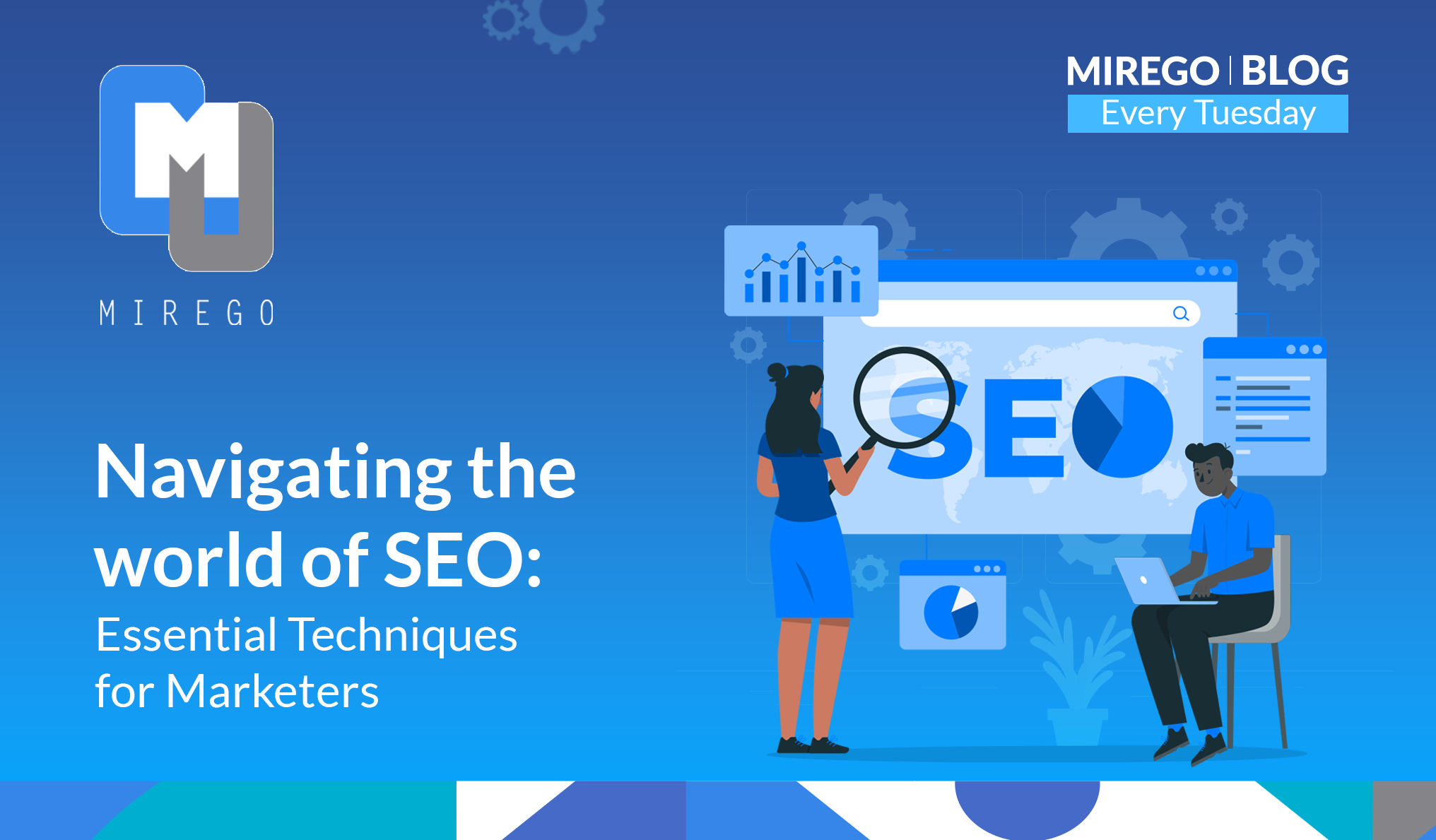


Essential Techniques for Marketers
Mastering the art of Search Engine Optimization (SEO) is no longer a choice but a necessity for marketers. Effective SEO techniques can significantly boost your website’s visibility, drive organic traffic, and ultimately lead to better conversion rates. Whether you're a seasoned marketer or just dipping your toes into the marketing waters, this blog is your compass, guiding you through the fundamental SEO techniques such as keywords, on-page and off-page optimization, insights and the latest trends that shape the digital marketing landscape that every marketer should be well-versed in and we'll break down the complexities of SEO into small, actionable insights and the latest trends that shape the digital marketing landscape. Our goal is simple: to equip you with the knowledge and tools you need to boost your online presence and connect with your target audience effectively.
1.Keyword Research:
Keyword research is the foundation of any successful SEO strategy. It’s the process of identifying the specific words and phrases that potential customers use to search for products or services online. Understanding these keywords is crucial as they form the basis for optimizing your content and ensuring it appears in search engine results. For beginners, understanding your audience by considering their pain points and needs will enable you to leverage keyword research tools like Google keyword Planner to identify relevant keywords and provide valuable data based on search volume and competition.
By investing time in comprehensive keyword research, you can better align your content with what your audience is actively searching for.
2.Creating Content that Engages and Informs
Creating high-quality, engaging content is paramount for SEO success, regularly updating and refreshing your website's content is a crucial element of a successful SEO strategy. Search engines are now prioritizing content that is well-written, informative, and appeals to readers. Make sure your content is comprehensive and optimized for both users and search engines as the algorithms reward websites that consistently update their content with improved rankings and this makes search engines perceive your website as a valuable resource for users. Strategies for maintaining content updates include identifying and updating content such as blog posts, descriptions and more. By keeping your content up to date and relevant, you’ll boost SE rankings and engage your audience all the while making sure your content doesn’t go stale.
3.On-Page Optimization
On-page SEO is a form of optimizing your website's content for search engines. While it might sound complex, it's a crucial component of your digital marketing strategy. Optimizing your on-page elements such as your page titles, meta descriptions, header tags, and URL structure is crucial to rank higher in search engine results pages (SERPs). Furthermore, incorporating relevant keywords, creating informative and engaging content with these elements not only boosts your website’s visibility but also ensures your valuable content reaches the right audience and ultimately drives more organic traffic to your site.
4. Building Backlinks: Quality over Quantity
Backlinks also known as inbound or incoming links remain one of the most influential factors in determining a website’s authority and ranking. However, the focus has shifted from quantity to quality. A single link from a reputable, well-established website carries more weight than numerous links from low-quality sites. The reason why it’s essential is because High quality backlinks add credibility to your site, demonstrate that your content is relevant and bring direct referral traffic to your site. To help you keep an eye on your site’s link building progress, regularly monitor your backlink profile using tools like Google search Console and third-party SEO tools.
5.Mobile Optimization: Focusing on user-experience
With the majority of internet users now accessing websites through their mobile devices, User experience (UX) now plays a pivotal role in determining your website's search engine rankings whether it be on mobile or desktop. Ensuring that your website is responsive and provides a seamless user experience across all devices and is not just about a visually appealing website not only improves your SEO but also enhances user engagement and conversions. Key elements to take into consideration when it comes to User Experience for Search engine Optimization include page load speed, mobile responsiveness, intuitive navigation so that find users find what they are looking for with minimal effort. In the end, remembering that positive user experience translates into longer page visits, low bounce rates and better SEO rankings will be your ticket to creating a website that captivates visitors and ranks higher in search engine results.
Conclusion
Navigating the world of SEO may seem like a difficult task, but with the right techniques, marketers can achieve impactful results. By conducting thorough keyword research, creating engaging content, optimizing on-page elements, building high-quality backlinks, catering to mobile users and monitoring results, you’ll be on your way to dominating the search engine rankings and reaching your target audience effectively.

As the marketplace is frequently evolving, it's critical to track the results of your mark ...

Introduction:
In today's competitive marketplace, building a prominent brand requires more than just a great product or service. It demands a strategic approach that encompasses a well ...

Introduction
In today's fiercely competitive marketplace, brand maintenance is a critical aspect of achieving enduring success. A brand that exudes strength not only sets your business ...